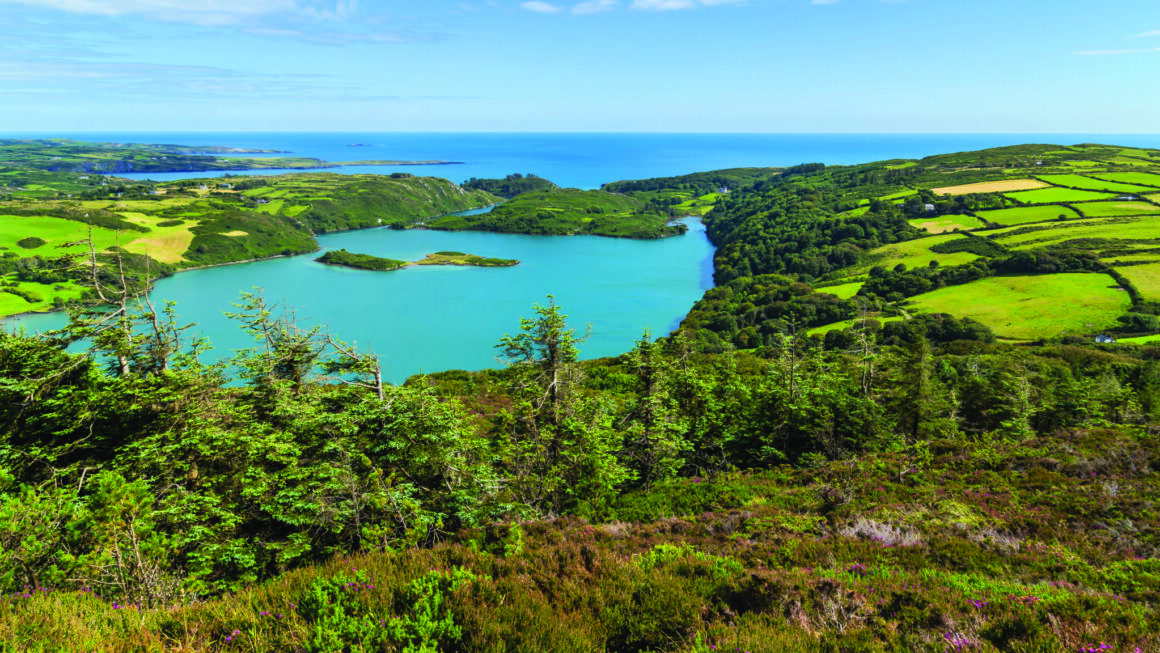By Caoimhe Lyons
Lough Hyne is a semi-enclosed marine lake located in Carbery West, Co. Cork. In 1981, it was designated a nature reserve by the Irish government. This was largely due to its significance as a highly unique ecosystem; its biodiversity is internationally recognised. It is one of the most studied places in the world for a system of its size.
Its contents are often described as otherworldly, and many of the creatures, even just below the surface, would be spotted elsewhere in the ocean’s depths. Perhaps the most peculiar sight are sea sponges just above the surface. These have experienced a significant decline in population health in recent years due to pollution.
Sharp decline
There is evidence of a sharp decline in biodiversity as a whole within the lake, and prominent researchers are calling for a local and governmental action plan to mitigate the effects of pollution on the system. The main source of concern is eutrophication, where the products of largely agricultural waste lead to issues such as algal blooms and lack of oxygen within the water. Temperature increases have also had a notable effect.
While the laboratories surrounding the lough have received funding from the government in the past, this doesn’t even constitute a band-aid on the issue at hand. Deterioration of ecosystems like this one will transform ecology laboratories into mortuaries if we fail to tackle the true sources of the climate crisis.
Globally, the loss of biodiversity has been brought to the fore of the discussions around the environmental crisis. Events like the loss of biodiversity at Lough Hyne are indicative of the deep, systemic problem of the degradation of the natural world – a fundamental consequence of the destructive nature of capitalism.
Epic failure from government
The Irish government, while falling behind EU targets, nonetheless has continued to try and pin the onus of responsibility on individuals – a common approach of capitalist governments. All the while they are propping up the major agri-businesses and appeasing lobbying groups like the National Dairy Council, as well as the fossil fuel industries. In particular their track record on environmental preservation is abysmal.
They have consistently cut funding to the National Parks & Wildlife Service with a slight change in 2021, but methods of conservation remain utterly inadequate. Coillte in particular is a for-profit monoculture enterprise that has been allowed to plant on boglands which are incredible at carbon sequestration, but are harmed by the prevalence of Sitka spruce plantations.
That is why it should be no surprise to hear that despite being under public ownership since 1981, and one of the most well documented ecological systems, the government has sat back and watched the alarming reduction in biodiversity at Lough Hyne. Public ownership is an important start, but with a government and economic system this rotten, the natural world will be left to fend for itself.
The establishment will put the interests of big business before the wellbeing of the environment, and has no problem blaming people’s use of cars or diet as a cop out. In a capitalist system that is driven by the accumulation of capital, ecological collapse is inevitable. We need to take all the major companies and financial institutions that are killing the planet into public ownership, under democratic workers’ control. Only in this way can we plan the economy in a manner that is sustainable and safeguard future generations.











